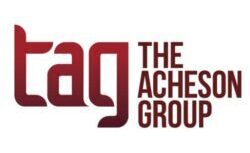Submitted by foodborne-illness attorney Bill Marler, on behalf of individuals and consumer groups, the “Petition for an Interpretive Rule Declaring ‘Outbreak’ Serotypes of Salmonella enterica subspecies enterica ) to be Adulterants Within the Meanings of 21 U.S.C. § 601(m)(1) and ) 21 U.S.C. § 453(g)(1)” requests that USDA FSIS “issue an interpretive rule declaring Salmonella Outbreak Serotypes to be adulterants within the meaning of the FMIA and the PPIA.” Additionally, the petition requests “expedited review” in order to “enhance the public health by reducing food safety hazards.” This is not the first time that USDA has been petitioned about making Salmonella an adulterant. As long ago as 2011 the Center for Science in the Public Interest (CSPI) submitted a petition requesting that four antibiotic-resistant Salmonella serotypes be considered adulterants. The four strains identified by CSPI were all ones causing outbreaks at the time. This 2011 petition was not approved and CSPI submitted an updated petition in 2014, but again this did not result in any declaration of Salmonella as an adulterant. As we all know, Salmonella continues to be a significant cause of illness and outbreaks in the US, so it is not surprising that there is another attempt to get certain Salmonella serotypes considered to be adulterants. In actionable terms, the current request is for a rule to prevent specific Salmonella serotypes from entering commerce, “thus decreasing foodborne contamination.” Although the standard rulemaking process is for a federal agency to issue a proposed rule, allow time for comments, then publish the final rule, Marler bases his case on the Federal Meat Inspection Act (FMIA) and Poultry Products Inspection Act (PPIA), which do not require USDA to engage in this substantive rulemaking to deem a substance to be an adulterant. And he cites the Administrative Procedures Act (APA) which states that agencies may issue “interpretive rules, general statements of policy, or rules of agency organization, procedure, or practice” without the notice and comment procedures required for proposed rulemaking. In the petition Marler also cites scientific grounds for the Salmonella regulation, personal stories from outbreaks, and the Jack in the Box E. coli outbreak of 1993 – for which he represented hundreds of victims – and the rules, industry actions, and innovations that “inspired.” So, what will Marler’s current crusade inspire? Although, as of this writing, the meat industry has not made public comment on the petition, it is certainly contentious with the industry. But even meat and poultry producers will have to admit (even if only silently in the back of their minds) that there is some logic to it all: CDC estimates that Salmonella bacteria cause about 1.35 million infections, 26,500 hospitalizations, and 420 deaths in the U.S. every year – with food being the primary source. USDA, itself, states: “Salmonella bacteria are the most frequently reported cause of foodborne illness.” And that Salmonella Enteritidis and Salmonella Typhimurium account for half of all human infections. in November, more than 34,000 pounds of ground beef were recalled for potential Salmonella contamination. Although the outbreak resulted in “only” 13 reported cases, one resulted in a death and nine in hospitalizations. Because Salmonella is not currently considered an adulterant in meat and poultry, no strains are banned. However FDA does consider it to be an adulterant, and cites it in the Preventive Controls rule as an “environmental pathogens that a facility must consider in its hazard analysis” adequately reducing its presence “to an extent sufficient to prevent illness.” So … what can and should meat and poultry producers do as all this plays out? Our experience from working with clients on Salmonella risk control is that it is already an industry best practice to focus extra resources on specific strains of public health relevance, especially in the poultry industry. It is also important to realize, with all due respect, the stature, influence, and tenacity of Bill Marler. This is not going to go away. How deep the impact will be, how far it will go in regulation, and how quickly it will all happen is yet to be seen. But people are getting sick; they are dying from Salmonella contamination and industry has already adopted a practice to control high human health impact strains. Thus far, the presence of Salmonella has been seen as natural and inevitable in meat and poultry and as the consumer’s responsibility to correctly handle and cook raw products. But the pushback is getting stronger, and a crusader is now leading the charge. So, I repeat, this is not going away. In my view, we are well aware that certain serotypes of Salmonella are a threat to public health more than others. As noted above, the industry is already adopting a risk-based approach. If this petition is successful, the challenge for the industry will be making serotype-specific controls, and the only way to do that would be to test for a lot of serotypes, thus driving up costs to the industry. So perhaps there is a middle ground here where FSIS supports a serotype-specific risk-based approach but falls short of making specific serotypes adulterants – time will tell where this all lands. Consumer group lawsuits and citizen petitions are becoming the norm today, causing the federal food agencies to look at and regulate areas which had not previously been of high priority; and causing food producers to be ever more vigilant in all areas of consumer concern. It’s not easy to keep an ear to the ground to know and prepare for everything coming your way – while focusing on the overarching tasks of food production. But know that TAG does it for you. We keep an ear to the ground, an eye to the sky, and a finger on the pulse, and help provide solutions for it all. Give us a call, we’re here for you. About The Acheson Group (TAG): Led by Former FDA Associate Commissioner for Foods Dr. David Acheson, TAG is a food safety consulting group that provides guidance and expertise worldwide for companies throughout the food supply chain. With in-depth industry knowledge combined with real-world experience, TAG’s team of food safety experts help companies more effectively mitigate risk, improve operational efficiencies, and ensure regulatory and standards compliance. www.AchesonGroup.com






